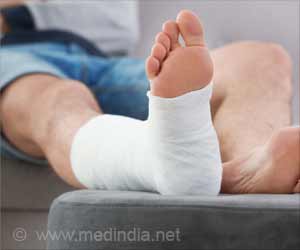The study team examined the timing and site of bone fractures along with the fracture risk for around 10 million people with and without cerebral palsy using public and private insurance claims from 2016. The critical periods of bone health were then compared between the general population and those with cerebral palsy.
‘Specific subset of middle-aged men with cerebral palsy is shown to have up to 5.6 times more risk to suffer fractures than men without the disorder. This helps in framing better clinical care and preventive measures for fracture based on the timing of the bone health among people with cerebral palsy.’
It was found people with the disability have fragile bones that present high fracture risk, but at different times across the lifespan compared to the general population. Thus knowing the critical periods (period where bones change rapidly) of bone health differs among people with cerebral palsy.
Bone health in Cerebral Palsy
The critical periods of bones are reference points that are used for fracture prevention efforts and post-fracture health care management.
The study not only found the elevated fracture risk in middle aged-men, but also found that adolescence and young adult years are a particularly vulnerable time for fractures for people with cerebral palsy, but in different ways for females and males.
This prompted the development of new sex-specific critical periods of bone health for this population. The study thereby confirms that people with cerebral palsy have a higher risk of fractures. This helps in framing better clinical care and preventive measures for fracture based on the timing of the bone health among them.
However, factors like sex-specific bone health in women, the effect of menopause transition on it, elements that precipitate premature bone fragility need to be addressed.
“This study provides novel insight into the magnitude and unique timing of bone fragility across the lifespan for individuals with cerebral palsy, and it expands our toolkit to identify new ways to address a long-standing problem,” says Daniel Whitney, Ph.D., the study lead and assistant professor of physical medicine and rehabilitation at Michigan Medicine.
Source: Medindia



